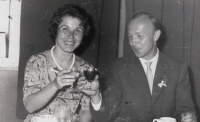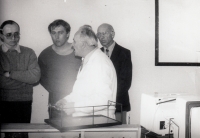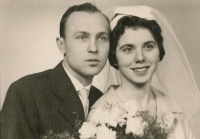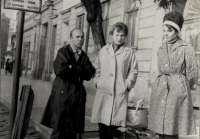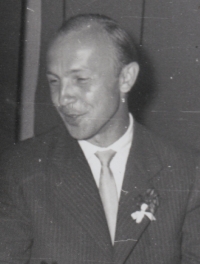During the war, the border with the Great German Reich was created behind our village

Stáhnout obrázek
Milan Kopecký was born on 20 April 1937 in Hranice na Moravě as the younger of two children of Maria and Jaroslav Kopecký. His father, a teacher, got a job in 1940 as headmaster of a school in Velký Újezd, where he came from and where the family lived together with his grandparents. During the war, the village was adjacent to the German Reich. My grandfather had a farm and a timber business. In 1946-1947 Milan Kopecký visited the German village of Varhošt‘ several times, which was displaced in 1947. In 1948, his father was dismissed from his position as school principal. Milan Kopecký had problems with his admission to the grammar school, and eventually graduated in Olomouc. In 1955-1959 he studied at the Faculty of Science of the University of Education in Olomouc, majoring in mathematics and physics. In 1961 he married his classmate Emílie Cvachovcová. In 1964, he started working at the Pedagogical Institute in Olomouc (later the Faculty of Education at UPOL). He was persecuted for his attitudes towards August 1968 and was allowed to stay at the faculty, but he was not allowed to habilitate until 1989. He is the author of many professional publications for students. After the Revolution, he served as Vice-Dean of the Faculty of Education, and from 1996-2002 he headed the Department of Mathematics there. His wife died in 1992. He retired in 2007. All his life he devoted himself to music, especially to playing the piano. He and his wife raised two daughters. In 2023 he lived in Olomouc.
